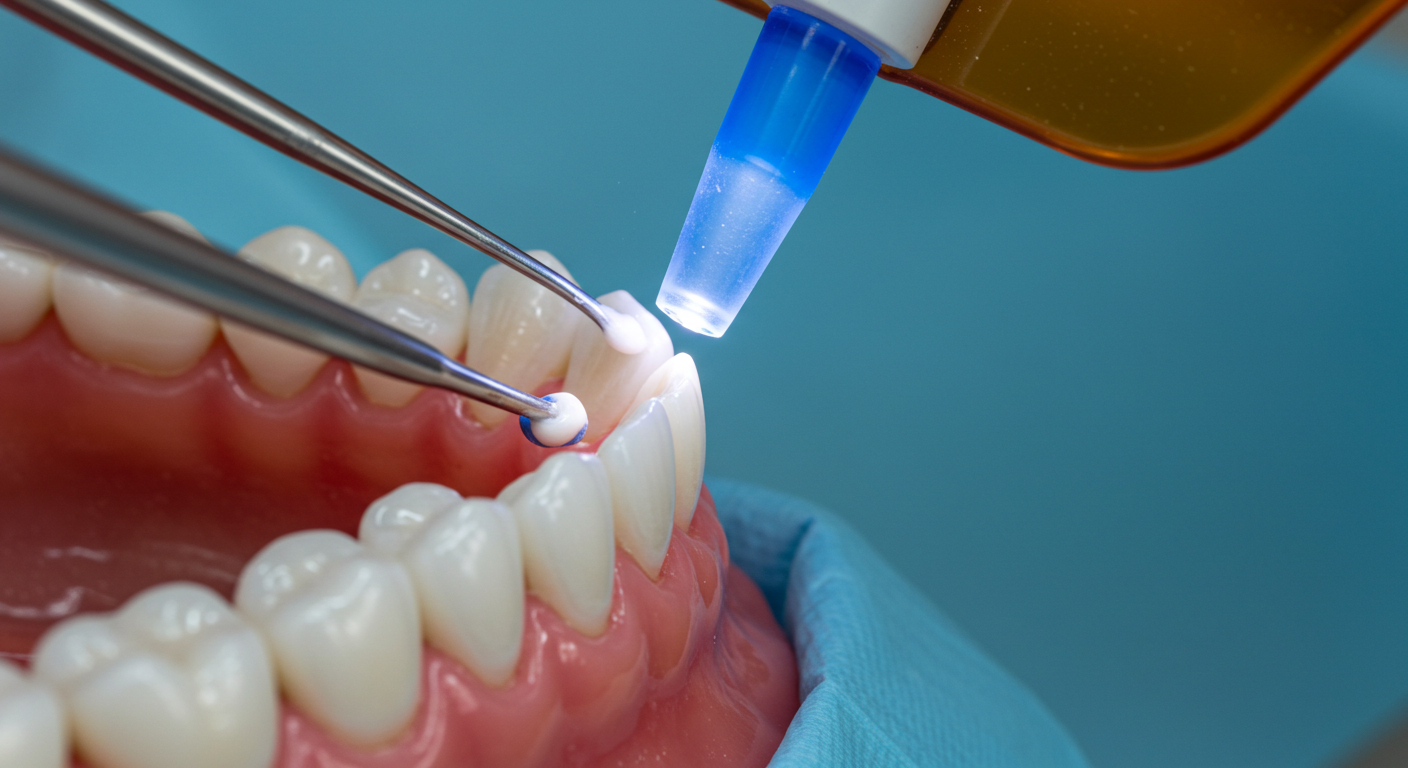Contents

Dental Resin: Uses, Types, and Lifespan
In the field of cosmetic and restorative dentistry, dental resin is one of the most versatile and widely used materials. From filling cavities to creating beautiful veneers, this composite material plays a crucial role in modern dental care. But what exactly is it, what are its different uses, and how long can you expect it to last? This guide will explore these questions in detail.
What is Dental Resin (Composite)? Definition and Characteristics
Dental resin, more accurately called composite resin, is a tooth-colored plastic and glass mixture used for dental restorations. It is a highly aesthetic and adaptable material that allows dentists to restore teeth in a way that looks natural and is minimally invasive.
Its key characteristics include:
- Aesthetic: The resin can be tinted to perfectly match the natural shade of your teeth, making restorations virtually invisible.
- Malleable: The material is applied in a putty-like state, allowing the dentist to sculpt it directly onto the tooth to achieve the desired shape.
- Bonding Capability: The resin is chemically bonded to the tooth structure, which adds strength to the restored tooth.
- Conservative: Its use often requires less removal of healthy tooth structure compared to other materials like amalgam or porcelain.
The Different Applications of Dental Resin
Dental resin's versatility makes it suitable for a wide range of procedures:
| Application | Description |
|---|---|
| Fillings for Cavities | The most common use. Resin is used to fill cavities in both front and back teeth, offering a more aesthetic alternative to silver amalgam fillings. |
| Cosmetic Bonding / Veneers | Resin is applied to the front of teeth to correct chips, cracks, gaps, and discoloration. This is known as composite veneers or dental bonding. |
| Denture Bases and Teeth | Pink-colored acrylic resin is used to create the gum-like base for dentures, and tooth-colored resin is used for the artificial teeth. |
| Orthodontic Appliances | Clear resin is often used to create orthodontic retainers and clear aligners. |
What is the Lifespan of Dental Resin Restorations?
The durability of a dental resin restoration depends heavily on its location in the mouth, the size of the restoration, and the patient's oral habits and hygiene. On average, you can expect a composite resin restoration to last between 5 and 10 years. Modern, high-quality composite materials can sometimes last up to 12-15 years with excellent care.
Factors that influence the lifespan include:
- Biting Forces: Restorations on molars, which endure heavy chewing forces, may wear down faster than those on front teeth.
- Oral Habits: Habits like teeth grinding (bruxism), nail-biting, or chewing on hard objects can significantly shorten the life of a resin restoration.
- Diet and Staining: Composite resin is more porous than porcelain and can stain over time from frequent consumption of coffee, tea, red wine, or tobacco.
- Oral Hygiene: Good brushing and flossing habits are crucial to prevent new decay from forming around the edges of the restoration.
How to Maximize the Lifespan of Your Dental Resin
To get the most out of your resin restorations, follow these recommendations:
- Practice Excellent Oral Hygiene: Brush twice daily with a soft-bristled toothbrush and non-abrasive toothpaste, and floss daily.
- Limit Staining Foods and Drinks: Be mindful of your consumption of staining agents.
- Avoid Bad Habits: Do not use your teeth as tools to open packages or bite on hard objects.
- Wear a Nightguard: If you grind your teeth, a custom nightguard is essential to protect your restorations.
- Regular Dental Check-ups: Visit your dentist regularly for professional cleanings and to have your restorations checked and polished. Polishing can remove surface stains and keep the resin looking its best.
Conclusion: A Versatile and Essential Material
Dental resin is a cornerstone of modern dentistry, offering fast, affordable, and aesthetic solutions for a wide range of dental issues. While it may not be as durable as porcelain or metal in all applications, its ability to conserve tooth structure and create beautiful, natural-looking results makes it an invaluable tool for dentists and patients alike. By understanding its properties and committing to proper care, you can ensure your resin restorations serve you well for many years.
FAQ: Your Top Questions About Dental Resin
No, the composite resin material does not respond to teeth whitening products. If you plan to whiten your teeth, you should do so before having any resin restorations placed so the material can be matched to your new, brighter shade.
While modern composite resins are very strong and durable, traditional silver amalgam fillings are generally considered to be stronger and more wear-resistant, particularly for large fillings in back molars. However, the aesthetic and conservative nature of resin makes it the preferred choice for most patients today.
One of the key advantages of composite resin is its repairability. If a small chip occurs on a filling or a bonded veneer, your dentist can often easily repair it by bonding new resin material directly onto the existing restoration in a single appointment.
